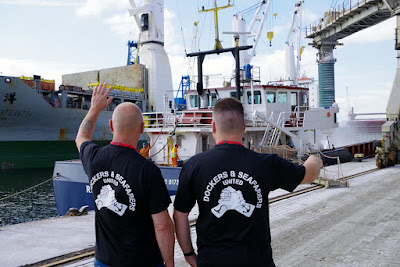"I have been living in the West for more than half of my life now, but the bigotry of this 'best of worlds' still amazes me, and continues to do so. The West is simply incapable of understanding anything. In the current
Spiegel, a cover story - well done for the most part - about young Muslims from Germany who join ISIS. Reporters try to find answers to the question of why, and they do an excellent job, researching, going into courtrooms, talking to parents, friends, experts, visiting mosques, tea shops, clubs - whatever you do as a reporter.
And then they say that the young men come "from a world in which war and religion have been banished from political self-understanding. The 70-year peace that has reigned in Western Europe has made warlike violence taboo ..."
What baffles me about this is the matter-of-factness with which West (Is
Der Spiegel "the West"? Yes, it is.) passes over its own warlike actions here (not least in the Muslim world), as if that had nothing to do with the topic. And let's stay with Germany: 15 years after the air strikes on Yugoslavia, five years after the negligent bombing at Kunduz, we see ourselves as a society that has "made warlike violence taboo"? This is interesting.
The FRG was incapable of understanding the GDR, West Germany is incapable of understanding East Germany, Obama, Merkel,
Spiegel, ARD and ZDF are incapable of understanding Russia. They are incapable of understanding Putin, and they are even proud of it. The West is incapable of understanding anything. Everything foreign to it is just an opportunity for self-congratulation, and good opportunities must not be missed.
It is clear where this is bound to lead. It's a pity, as perhaps the West is indeed the best of worlds."
Notebook, November 21, 2014




